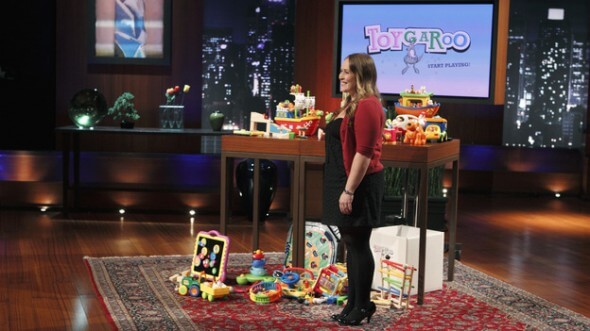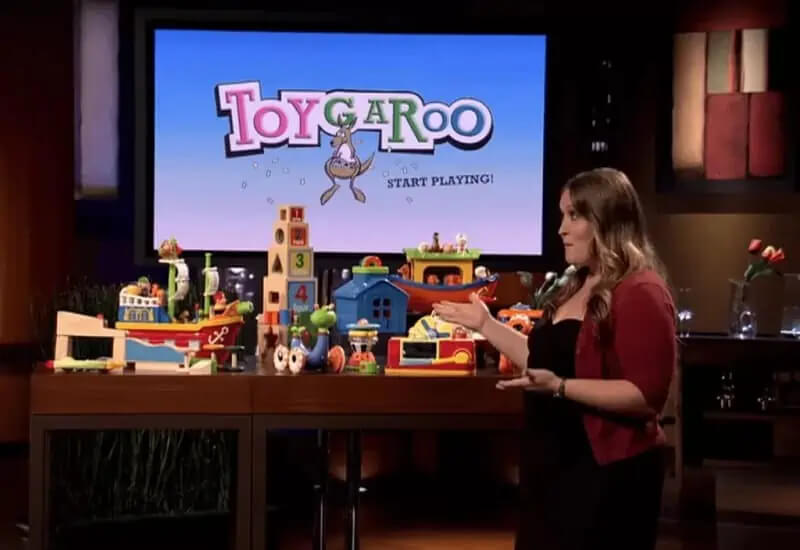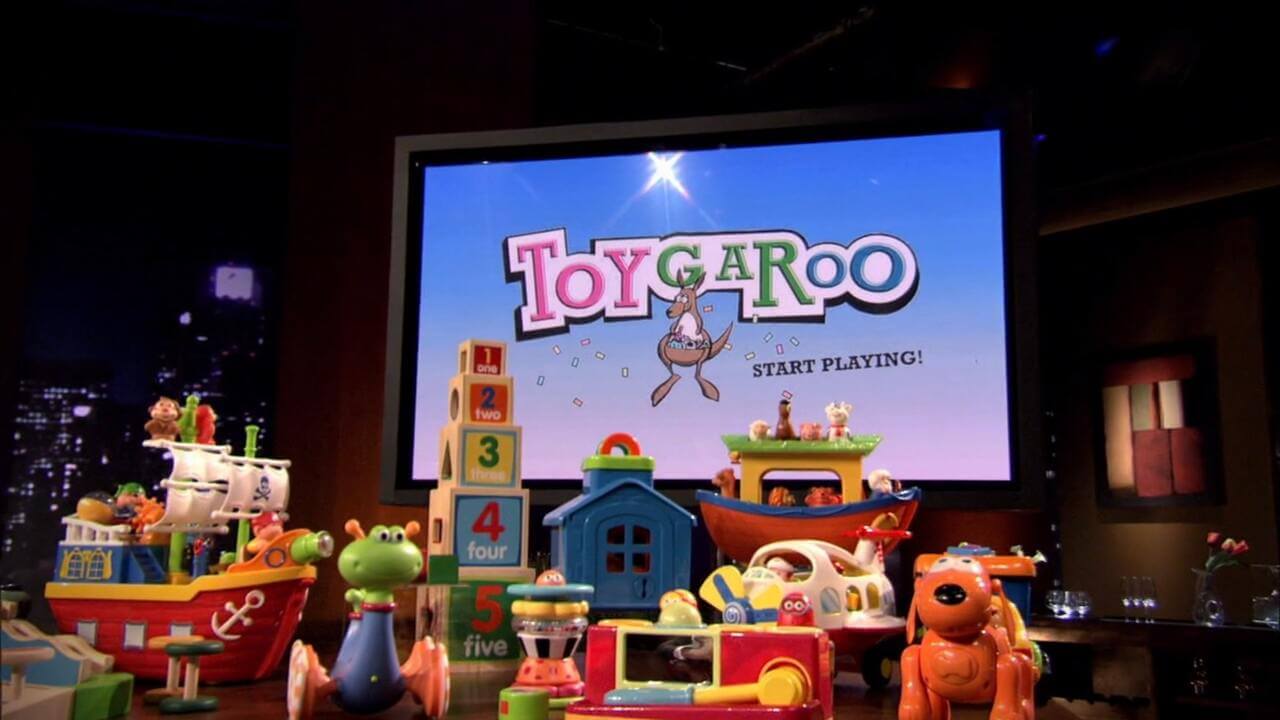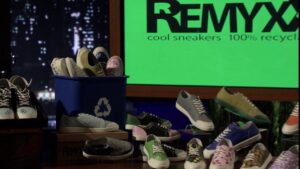Imagine a world where you could rent toys for your children, just like renting movies. Toygaroo aimed to make this dream a reality. The concept was simple yet innovative, offering parents a cost-effective way to provide variety without clutter. The story of Toygaroo is fascinating, especially its journey on the popular TV show Shark Tank. Let’s explore how Toygaroo emerged and whether it managed to secure a deal with the Sharks.
In an era where subscription services are booming, Toygaroo entered the scene with a novel idea. It promised to change how parents think about buying toys. The company allowed families to select toys online and have them delivered to their doorsteps. After a while, you could return the toys and get new ones. This model was not only budget-friendly but also environmentally conscious.
As we delve into the details of Toygaroo’s journey, you’ll discover its unique business approach. We’ll also explore how it captured the attention of both parents and investors alike. The company’s appearance on Shark Tank was a pivotal moment, setting the stage for its future. But did this innovative idea win over the Sharks? Let’s find out.
Toygaroo appeared in Shark Tank Season 2 and secured an investment from Mark Cuban and Kevin O’Leary.
Contents
ToggleToygaroo Overview
Toygaroo was founded with a vision to revolutionize the toy industry. The idea was to provide a Netflix-like service for toys. This allowed parents to rent toys for a fraction of the cost of buying them. The founders believed this approach would appeal to budget-conscious families looking for convenience and variety.
With a wide range of toys available, Toygaroo catered to children of different ages and interests. The company offered flexible subscription plans, making it easy for families to choose what suited them best. This flexibility was a major selling point, attracting a growing customer base eager to try something new.
Toygaroo’s business model was not only about saving money but also about sustainability. By renting toys, parents could reduce waste and avoid the clutter that often comes with toy ownership. This eco-friendly angle resonated with many families, adding to the company’s appeal.
The concept was gaining traction, and Toygaroo was starting to make waves in the industry. However, the company needed more than just a great idea to succeed. It needed investment to scale and reach a wider audience. This is where Shark Tank came into play, offering a platform to present the concept to seasoned investors.

Toygaroo Shark Tank Pitch: Did They Secure a Deal?
The appearance on Shark Tank was a crucial moment for Toygaroo. The founders stepped onto the stage with high hopes and a clear vision. They aimed to convince the Sharks that their idea was not only viable but also profitable. The pitch was well-prepared, highlighting the benefits of the subscription model and the growing customer interest.
The Sharks listened intently as the founders explained their business. They outlined the potential for growth and the positive feedback from existing customers. The founders were confident, and their enthusiasm was infectious. They believed they had a winning formula that could transform the toy industry.
As the pitch progressed, the Sharks asked probing questions, keen to understand the financials and scalability. The founders answered with clarity, demonstrating their knowledge and commitment. It was a tense moment, as the Sharks weighed the risks and rewards of investing in Toygaroo.
In the end, Toygaroo did manage to secure a deal on Shark Tank. The Sharks saw the potential in the idea and agreed to invest. This was a significant achievement, providing the company with the resources needed to expand. The deal was a testament to the strength of the concept and the determination of the founders.
For more insights into Toygaroo’s journey and other exciting stories from the world of entrepreneurship, visit SharkWorth. Our platform delves into the successes and challenges faced by businesses, offering valuable lessons for aspiring entrepreneurs.
Toygaroo’s story is a reminder of the power of innovation and the importance of perseverance. While securing a deal on Shark Tank was a major milestone, the real challenge was turning that investment into long-term success. As we continue to explore the world of business, Toygaroo remains a fascinating case study in creativity and ambition.
Toygaroo Networth
When Toygaroo first appeared on Shark Tank, it was seen as a promising startup with the potential to reshape the toy rental market. The founders came with high hopes, seeking a $100,000 investment for 10% equity. This valued the company at around $1 million, a figure that reflected their optimism and belief in the concept.
After securing a deal with the Sharks, Toygaroo’s net worth was expected to rise. The investment was supposed to fuel growth, allowing the company to expand its customer base and operations. However, the journey was not as smooth as anticipated. Despite the initial buzz, Toygaroo faced challenges that affected its financial standing.
For a while, Toygaroo’s net worth seemed poised for growth as it gained media attention and new subscribers. The concept was appealing, and many believed it would revolutionize how parents approached toy buying. However, underlying issues began to surface, impacting the company’s valuation.
These challenges included logistical hurdles, managing inventory, and maintaining customer satisfaction. The costs of scaling the business were higher than expected, putting a strain on resources. As these issues unfolded, Toygaroo’s financial health began to waver, and the anticipated rise in net worth did not materialize as hoped.
Ultimately, the company struggled to maintain its footing in a competitive market. The initial valuation, although promising, became difficult to sustain. Toygaroo’s net worth fluctuated as it faced the harsh realities of running a subscription-based business with high operational costs.
Toygaroo After Shark Tank
After the Shark Tank appearance, Toygaroo experienced a surge in interest and optimism. The deal with the Sharks was a significant milestone, providing the company with credibility and financial backing. However, the post-show period brought unforeseen challenges that tested the business’s resilience.
The company initially enjoyed a boost in subscriptions, with many parents eager to try the service. This increase in demand was both a blessing and a curse. While it validated the concept, it also exposed weaknesses in the business model. Managing the logistics of toy rental on a larger scale proved to be more complex than anticipated.
Toygaroo faced difficulties in maintaining a consistent supply of toys, leading to customer dissatisfaction. The logistics of shipping and returning toys required a robust infrastructure, which was costly to develop and maintain. These operational challenges began to weigh heavily on the company’s resources.
Despite the initial investment and interest, Toygaroo struggled to achieve profitability. The high costs associated with logistics and inventory management eroded the financial gains from increased subscriptions. The company found itself in a tough spot, needing more capital to sustain operations but facing diminishing returns.
As these challenges mounted, Toygaroo’s future became uncertain. The initial excitement from the Shark Tank deal waned as the company grappled with operational and financial hurdles. The vision of revolutionizing the toy rental market was overshadowed by the practical difficulties of executing the business model on a large scale.
Is Toygaroo Still in Business?
Toygaroo’s journey, marked by innovation and ambition, faced significant obstacles that ultimately led to its closure. Despite the promising start and the backing from Shark Tank investors, the company could not overcome the operational challenges that plagued its business model.
The logistics of managing a toy rental service proved to be more complex than anticipated. The costs associated with shipping, inventory management, and customer service were substantial. These expenses, coupled with the need for continuous investment in infrastructure, strained the company’s finances.
As a result, Toygaroo struggled to maintain its operations and eventually had to close its doors. The closure was a disappointment to many who believed in the concept and saw its potential to change the toy industry. The company’s inability to scale effectively and manage costs led to its downfall.
While Toygaroo is no longer in business, its story remains a valuable lesson for entrepreneurs. It highlights the importance of thoroughly understanding the logistics and financial demands of a subscription-based model. The challenges faced by Toygaroo serve as a reminder of the complexities involved in turning an innovative idea into a sustainable business.
Though the company is not operational today, its impact on the toy industry and the lessons learned from its journey continue to resonate. Toygaroo’s story is a testament to the challenges and rewards of entrepreneurship, offering insights for future innovators in the subscription service space.

What’s Next For Toygaroo
After its appearance on Shark Tank, Toygaroo found itself at a crossroads. The initial excitement and investment offered a promising start, but the road ahead was filled with challenges. One of the main questions was how Toygaroo could adapt and evolve to overcome these hurdles.
For many startups, securing a deal on Shark Tank is just the beginning. The real test is in execution and adaptation. Toygaroo needed to refine its business model to address the logistical issues that had surfaced. This included streamlining the toy rental process and improving inventory management.
Another key area for Toygaroo was enhancing customer satisfaction. The company had to ensure that subscribers received toys on time and that returns were handled efficiently. By focusing on the customer experience, Toygaroo could build a loyal user base and encourage word-of-mouth referrals.
Exploring partnerships and collaborations was also on the agenda. By teaming up with toy manufacturers or logistics companies, Toygaroo could potentially reduce costs and improve service delivery. These partnerships could provide the expertise and resources needed to scale effectively.
Innovation remained at the core of Toygaroo’s strategy. The company could explore new subscription models or expand its product offerings. By staying ahead of trends and continuously improving, Toygaroo aimed to maintain its relevance in a competitive market.
The future for Toygaroo was uncertain, but with the right strategies, there was potential for a comeback. The lessons learned from initial challenges could pave the way for a stronger, more resilient business. As Toygaroo navigated this phase, its journey provided insights for other entrepreneurs facing similar obstacles.
Toygaroo’s Products and Services
Toygaroo’s concept was straightforward yet innovative. It offered a rental service for children’s toys, allowing parents to provide variety without the high cost of ownership. This approach resonated with families looking for both budget-friendly and environmentally conscious solutions.
The company provided a wide range of toys catering to different age groups and interests. From educational toys to popular action figures, Toygaroo aimed to offer something for every child. This diversity was a key selling point, appealing to parents seeking options that matched their children’s evolving interests.
Subscription plans were central to Toygaroo’s service. These plans offered flexibility, allowing families to choose the number of toys and the rental duration. This model provided convenience and the opportunity to try new toys without long-term commitment.
Environmental sustainability was another important aspect of Toygaroo’s offerings. By renting toys, families could reduce waste and minimize the clutter associated with toy ownership. This eco-friendly angle added to the appeal, attracting parents who valued sustainable practices.
Despite the challenges faced, Toygaroo’s product and service offerings had the potential to disrupt the traditional toy market. The focus on variety, affordability, and sustainability set it apart from conventional toy retailers. For families, Toygaroo presented a unique alternative to buying toys outright.
As Toygaroo explored ways to refine its services, the emphasis remained on delivering value to customers. By addressing logistical and operational issues, the company aimed to enhance its offerings and provide an even better experience for subscribers.
The journey of Toygaroo highlighted the importance of innovation and adaptability in the subscription service industry. Its products and services, while initially promising, required continuous improvement to meet the demands of a growing customer base.
FAQ’s
What Are the Latest Updates About Toygaroo Shark Tank?
Toygaroo is no longer in business. Despite initial success and investment from Shark Tank, operational challenges led to its closure. The company struggled with logistics and high operational costs, which ultimately led to its downfall.
Did Toygaroo Get a Deal on Shark Tank?
Yes, Toygaroo secured a deal on Shark Tank. The Sharks were impressed with the concept and agreed to invest, providing the company with the resources needed to expand. However, the business faced challenges post-investment.
What Happened to Toygaroo Shark Tank?
After the initial excitement from Shark Tank, Toygaroo faced significant logistical and financial challenges. These issues, coupled with high costs, led to the company’s closure. Despite the promising start, Toygaroo could not sustain its operations.
Who Owns Toygaroo?
Toygaroo was founded by Nikki Pope, who owned a small percentage of the company. The majority of the business was owned by other partners. Ownership concerns were raised during the Shark Tank pitch, but the Sharks still saw potential in the business.
Is Toygaroo Successful Now?
No, Toygaroo is not successful now. The company is no longer operational due to the challenges it faced in scaling its business model. Despite the promising start and investment, Toygaroo couldn’t overcome its logistical and financial hurdles.
What We Know About The Founder?
Nikki Pope was the co-founder of Toygaroo, presenting the idea on Shark Tank. She owned a minority stake in the company. Nikki aimed to revolutionize the toy industry with a Netflix-like rental service, capturing both parent and investor interest initially.







